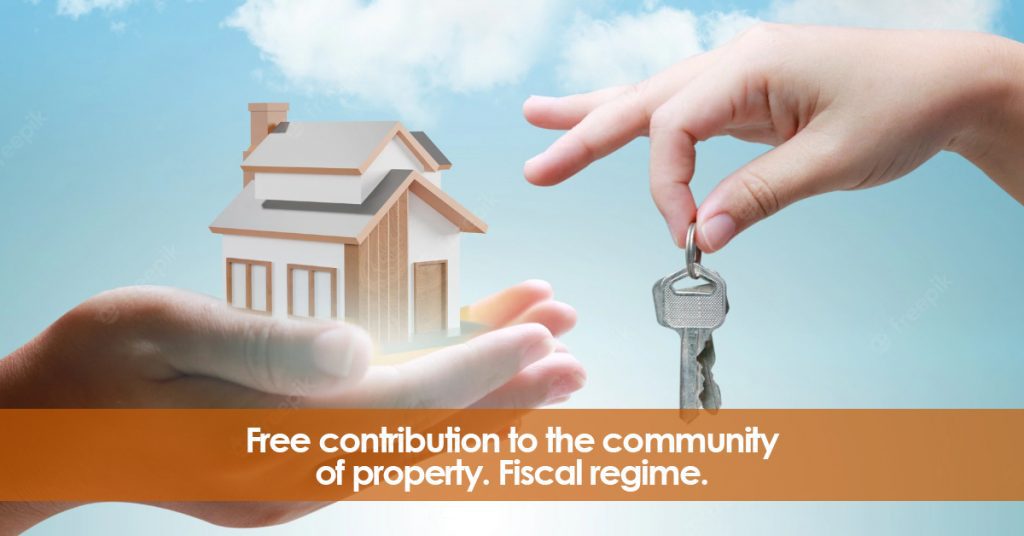The Supreme Court has ruled on one of the most common operations between spouses: the free contributions of assets to the community of property or conjugal partnership. The sentence confirms that these contributions are not taxable neither in the Donations Tax (ID) nor in the Transfer Tax and Stamp Duty (ITP-AJD). Although this sentence is very beneficial for the taxpayer, several doubts arise in relation to Free contribution to the community of property.
What happens with the Personal Income Tax (IRPF)?, What about the Municipal Plusvalía (IIVTNU)? What taxes will I have to face if I want to make a free contribution to the community of property? In today’s article we analyse the Supreme Court ruling and answer these questions in detail.
Conjugal Partnership: Germanic or Roman community of property?
To fully understand the ruling, it is convenient to begin making a basic distinction between the types of existing communities: Roman and Germanic.
In the Roman community, also known as ‘community by quotas’, the common thing is divided into as many parts as there are commoners. Each one is assigned a quota (5 per cent, 10 per cent, etc) and according to this participation, he or she will exercise his or her rights, contribute to the expenses, etc. On the other hand, the conception of the Germanic community is radically different. It is a community with a vocation of stability and permanence. With a strong personal bond between the co-owners. In this type of community, the property belongs equally to all the owners and there are no quotas between them.
Free contribution to the conjugal partnership (ISD and ITP-ADJ)
Until recently, the General Directorate of Taxes considered that the contributions to the community of property were taxable. When the contribution was free of charge, it was subject to ID. When it was onerous, to the ITP-AJD. What does the Supreme Court ruling establish in this respect? After a detailed analysis of the legal characteristics of the community of property, it concludes that these contributions are not taxable for several reasons:
- The conjugal partnership is a community of Germanic character. Neither spouse owns half of the assets, nor are there quotas between them. Both are holders, jointly, of all the assets of the community of property.
- The assets of the community property are separate from the respective individual patrimony of each spouse. Therefore, the contribution by one spouse will never become part of the private assets of the other spouse. The recipient of the contribution is the community of property, not the other individual.
- Conjugal partnerships do not have the status of taxpayers in the General Tax Law.
What happens with Personal Income Tax (IRPF) and Municipal Capital Gains Tax (IIVTNU)?
Art. 104.3 of the Law of Regulation of Local Treasuries leaves no room for doubt: the free contribution to the community of property is not taxable by the Plusvalía Municipal. What happens with the IRPF? Can the Tax Agency infer that a contribution to the society generates a patrimonial gain in the other spouse? Although the Supreme Court does not make any specific pronouncement in this tax, it seems clear that its conclusions could and should extend to the Personal Income Tax. That is to say: in these cases, there is no capital gain. On the one hand, because the spouse who makes the contribution remains full owner of the property at all times.
On the other hand, because the other spouse is not experiencing an increase in his or her private assets, since the donation is made to the partnership, and not to him or her. Finally, as we have indicated previously, the community of property does not have the status of taxpayer.
If you are considering making a free contribution to the community of property, do not hesitate to contact us. We will study your case, and we will offer you expert advice on the taxation of this transfer.
The information provided in this article is not intended to be legal advice, it simply conveys information related to legal issues.
Carlos Baos (Lawyer)
White & Baos.
Tel: +34 966 426 185
E-mail: info@white-baos.com
White & Baos 2022 – All Rights Reserved.
